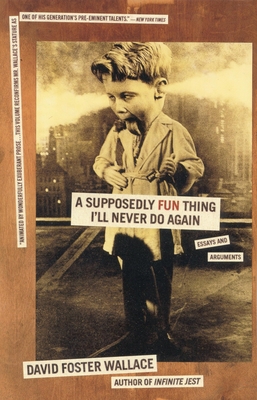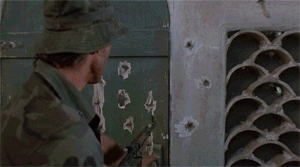I Read Books Sometimes – 1/20/10
 The Hardball Times Annual 2010
The Hardball Times Annual 2010
This is a bit obvious, but this book is only for hardcore baseball fans. Half of the book is writing, but the other half is STATS STATS STATS — mostly stats that you can get online. So really, the only part worth talking about is the writing, and what’s there is pretty great. But once again, I enjoyed the “Analysis” section the most and I can only see that appealing to major eggheads. Championship Leverage Index, Hit Tracker, PitchFX — I can’t see the typical fan in the stands to be interested in this stuff, but I absolutely eat it up. This is why I read Fangraphs and bought The Book and create Excel spreadsheets with WAR data.
Fahrenheit 451
Such a quick read that it’s practically a novella. Ray Bradbury is just a brisk read, going by this book and The Martian Chronicles, and I appreciate that. Fahrenheit 451 is a very straight-forward story, one whose themes have been prevalent in plenty of books and movies and TV shows and whatever since, but it still manages to be pretty interesting. The theme of people just wanting to be happy and watching TV all around them on their parlor walls sort of reminds me of Idiocracy, but I’d say 451 is a few notches above that ridiculously bad movie on the quality ladder. I have to say that the reason WHY books are all being burned in that dystopian future was the most surprising and thought-provoking aspect, when compared to other dystopian novels like 1984 and Brave New World that seem to think the ultimate destruction of society will come from the top-down. It’s a classic for a reason — just read it.
A Supposedly Fun Thing I’ll Never Do Again
Probably the most fun I’ve had reading in a long, long time. Now I understand why people were flipping out when news of David Foster Wallace’s suicide came out. The guy is a fucking genius and an absolute joy to read. He writes about tennis, television, a state fair, Lost Highway (an essay I admittedly decided not to read until I watch Lost Highway), and a Caribbean cruise all with the same enthusiasm and emotional sincerity, all with the same amazingly fun prose and insight. Even all his footnotes are immensely entertaining — and he likes footnotes.
This tennis essay is part of this essay collection, and it’s the best piece of sportswriting I’ve ever read. The original title was “Tennis Player Michael Joyce’s Professional Artistry as a Paradigm of Certain Stuff about Choice, Freedom, Discipline, Joy, Grotesquerie, and Human Completeness.” I guess that was too long for the Esquire website. I’m just going to post some passages:
There are very few paying customers on the grounds on Saturday, but there are close to a hundred world-class players: big spidery French guys with gelled hair, American kids with peeling noses and Pac-10 sweats, lugubrious Germans, bored-looking Italians. There are blank-eyed Swedes and pockmarked Colombians and cyberpunkish Brits. Malevolent Slavs with scary haircuts. Mexican players who spend their spare time playing two-on-two soccer in the gravel outside the players’ tent. With few exceptions, all the players have similar builds — big muscular legs, shallow chests, skinny necks, and one normal-size arm and one monstrously huge and hypertrophic arm. Many of these players in the qualies, or qualifying rounds, have girlfriends in tow, sloppily beautiful European girls with sandals and patched jeans and leather backpacks, girlfriends who set up cloth lawn courts.
Whether or not he ends up in the top ten and a name anybody will know, Michael Joyce will remain a paradox. The restrictions on his life have been, in my opinion, grotesque; and in certain ways Joyce himself is a grotesque. But the radical compression of his attention and sense of himself have allowed him to become a transcendent practitioner of an art — something few of us get to be. They’ve allowed him to visit and test parts of his psychic reserves most of us do not even know for sure we have (courage, playing with violent nausea, not choking, et cetera).
Joyce is, in other words, a complete man, though in a grotesquely limited way. But he wants more. He wants to be the best, to have his name known, to hold professional trophies over his head as he patiently turns in all four directions for the media. He wants this and will pay to have it — to pursue it, let it define him — and will pay up with the regretless cheer of a man for whom issues of choice became irrelevant a long time ago. Already, for Joyce, at twenty-two, it’s too late for anything else; he’s invested too much, is in too deep. I think he’s both lucky and unlucky. He will say he is happy and mean it. Wish him well.
I know the essay is long, but just read it. Print it out if you have to. Or just buy the essay collection. It’s less than 10 bucks. Two-thirds the price of Avatar in 3D and about 100 times better.
Related posts:















Pingback: Don’t Buy This Book — Just Read It | The Somewhat Manly Nerd